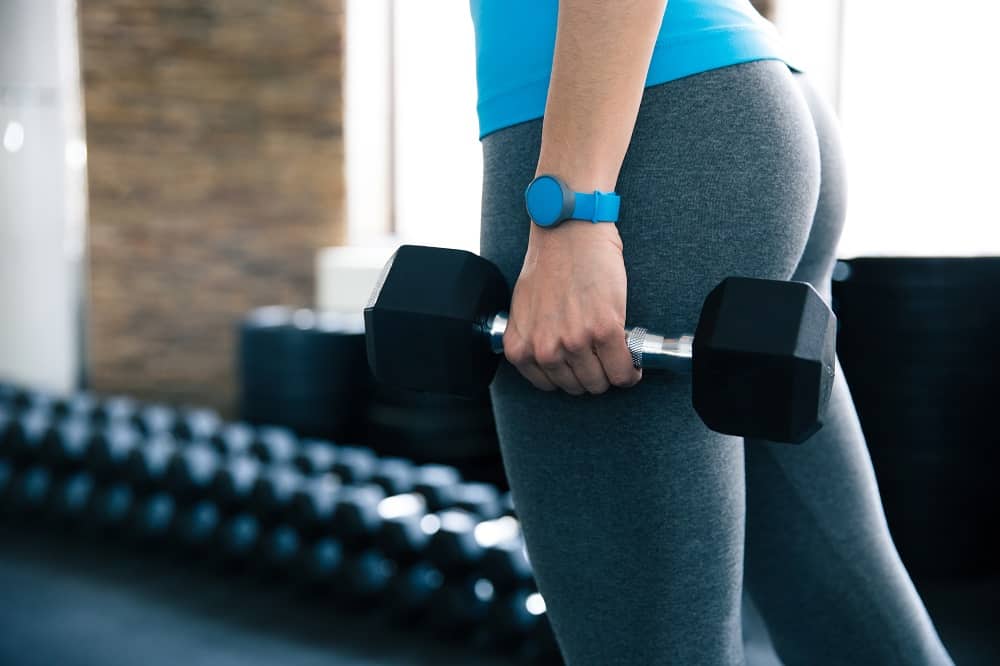Absolutely! I strength train three times a week for strength to improve my running rather than muscle mass.
Table of Contents
Muscle Mass and Running Performance
As a runner, I have always been curious about the relationship between muscle mass and running performance.
Some experts believe that runners should focus solely on endurance and not worry about building muscle mass, while others argue that having more muscle can improve running performance.
In this section, I will explore this ongoing debate and examine the impact of muscle mass on running performance.
The Debate Over Muscle Mass
A common misconception is that building muscle mass will hinder a runner’s performance by adding unnecessary weight that will slow them down. However, this is only partially accurate.
While carrying extra weight can slow a runner down, having more muscle mass can improve running performance in several ways.
One of the main arguments against building muscle mass is that it can negatively impact endurance.
However, research has shown that endurance and muscle mass are not mutually exclusive.
More muscle mass can improve endurance by increasing the body’s ability to store and utilize glycogen, the primary fuel source for endurance activities like running.
Another argument against building muscle mass is that it can lead to a loss of flexibility and range of motion, which can hinder running performance. While it is true that excessive muscle mass can limit flexibility, this is only a concern for bodybuilders and powerlifters who focus solely on building muscle mass.
Building muscle mass in a balanced and functional way for runners can improve flexibility and range of motion.
The Impact of Muscle Mass on Running Performance
While there is some debate over the role of muscle mass in running performance, there is no denying that having more muscle can positively impact running performance in several ways.
Firstly, having more muscle mass can improve running economy, which is the amount of oxygen a runner needs to maintain a given pace. Research has shown that runners with more muscle mass have better running economy, which allows them to run faster and longer with less effort.
Secondly, having more muscle mass can improve power and speed. This is because muscle generates the force necessary for sprinting and other high-intensity activities.
Runners with muscle mass have more power and speed, which can give them an edge in races and other competitions.
Finally, having more muscle mass can improve overall health and reduce the risk of injury.
Building muscle can strengthen bones, joints, and connective tissue, reducing the risk of injuries like stress fractures and tendonitis. Additionally, having more muscle mass can improve overall health by increasing metabolism, reducing the risk of chronic diseases like diabetes and heart disease, and improving the overall quality of life.
Building Muscle Mass for Marathon Runners
Resistance Training for Marathon Runners
I firmly believe that resistance training is essential for building muscle mass for marathon runners. I’m not referring to bodybuilding or powerlifting when I say resistance training. Instead, I’m talking about exercises that help runners strengthen their muscles and joints, prevent injuries, and improve their running efficiency.
Some of the best resistance training exercises for marathon runners include squats, lunges, deadlifts, step-ups, calf raises, and hip thrusts. These exercises target the major muscle groups in the legs, hips, and core, essential for running.
I typically include resistance training in my marathon training program twice weekly, with at least one day of rest. I start with lighter weights and higher reps to build endurance and proper form. As I progress, I gradually increase the weight and lower the reps to focus on building strength and power.
Nutrition for Building Muscle Mass
Nutrition is also a critical component of building muscle mass for marathon runners. I consume enough protein to repair and build muscle tissue while fueling my body with the necessary carbohydrates and healthy fats.
The best protein sources for marathon runners include lean meats, fish, eggs, dairy products, beans, and nuts.
I also consume enough carbohydrates to fuel my runs and replenish my glycogen stores, which are essential for muscle recovery and growth. In addition to protein and carbohydrates, I make sure to consume healthy fats, such as avocados, nuts, seeds, and olive oil.
These fats help reduce inflammation, improve joint health, and provide sustained energy for long runs. Overall, building muscle mass for marathon runners requires a combination of resistance training and proper nutrition. Incorporating these elements into your training program can improve your running efficiency, prevent injuries, and achieve your muscle-building goals.

Balancing Muscle Mass and Running Performance
The Importance of Balancing Muscle Mass and Running Performance
As a marathon runner, I know endurance is critical to performing well in races. However, I also understand the importance of maintaining muscle mass to prevent injury and improve overall performance.
Balancing these two goals can be challenging, but it is essential for long-term success as a runner. When balancing muscle mass and running performance, it’s essential to understand that too much muscle mass can hinder your running performance.
This is because excessive weight can slow you down and stress your joints. On the other hand, not having enough muscle mass can lead to injury and decreased performance. Therefore, finding the right balance between muscle mass and running performance is crucial for success as a marathon runner.
Training Strategies for Balancing Muscle Mass and Running Performance
I incorporate strength training into my training plan to balance muscle mass and running performance.
However, I focus on exercises that target the specific muscles used in running, such as the glutes, hamstrings, and calves. This helps me build lean muscle mass without adding unnecessary weight. In addition to strength training, I prioritize proper nutrition to support muscle growth and recovery.
This includes consuming enough protein to repair and rebuild muscle tissue and eating a balanced diet with plenty of fruits and vegetables for overall health. It’s important to note that finding the right balance between muscle mass and running performance will vary for each individual.
Listening to your body and adjusting your training plan is essential. Incorporating rest days and recovery techniques such as foam rolling and stretching can also help prevent injury and support muscle growth.
Balancing muscle mass and running performance is essential for success as a marathon runner.
Incorporating strength training and proper nutrition into your training plan can build lean muscle mass while improving your running performance.

Final Thoughts
Based on my research and the information provided by the search results, marathon runners can be muscular. However, it requires a balance between running and strength training and proper nutrition and recovery.
While running can help maintain muscle mass and inhibit proteins that interfere with muscle growth, it is not enough to build significant muscle.
Therefore, strength training in a marathon training regimen is essential for building muscle.
It is important to note that building muscle while training for a marathon may require a higher calorie intake to support endurance training and muscle building. This can be achieved through a balanced diet with adequate protein, carbohydrates, and healthy fats.
Additionally, proper recovery is crucial for muscle growth. This includes getting enough sleep, allowing rest days, and incorporating recovery activities such as stretching and foam rolling into a training routine.
In conclusion, marathon runners can be muscular with the right balance of running, strength training, nutrition, and recovery. It is possible to achieve both endurance and strength goals with a well-rounded training approach.
Frequently Asked Questions
Can marathon runners build muscle?
Yes, marathon runners can build muscle, but it may require a different approach than traditional strength training.
Is it possible to build muscle while training for a marathon?
Yes, building muscle while training for a marathon is possible, but it may require a specific training plan and nutrition strategy.
Can marathon training alone build muscle?
Marathon training alone is unlikely to build significant muscle mass, as it primarily focuses on endurance and cardiovascular fitness.
What type of strength training is best for marathon runners?
Strength training exercises targeting the legs, core, and upper body can benefit marathon runners but should be balanced with sufficient rest and recovery.
How often should marathon runners strength train?
Marathon runners may benefit from strength training 1-2 times per week, depending on their training plan and goals.
Should marathon runners lift heavy weights?
Marathon runners may benefit from lifting heavy weights but should consult with a trainer or coach to ensure proper form and minimize the risk of injury.
Can marathon runners build muscle without gaining weight?
Marathon runners can build muscle without gaining weight, but it may require a specific nutrition plan and a focus on lean muscle mass.
How much protein do marathon runners need to build muscle?
Marathon runners may benefit from consuming 1.2-1.7 grams of protein per kilogram of body weight per day to support muscle growth and repair.
Should marathon runners focus on high-intensity interval training (HIIT) to build muscle?
HIIT can benefit a marathon training plan but should be balanced with lower-intensity endurance training and sufficient rest and recovery.
Can marathon runners build muscle and still maintain endurance?
Marathon runners can build muscle while maintaining endurance but may require a specific training plan and nutrition strategy.
Is it possible to build muscle during a marathon taper?
It’s unlikely to build significant muscle mass during a marathon taper, as the focus is on rest and recovery rather than strength training.
Can marathon runners build muscle without sacrificing speed?
Marathon runners can build muscle without sacrificing speed, but it may require a specific training plan and a focus on balanced training and recovery.


